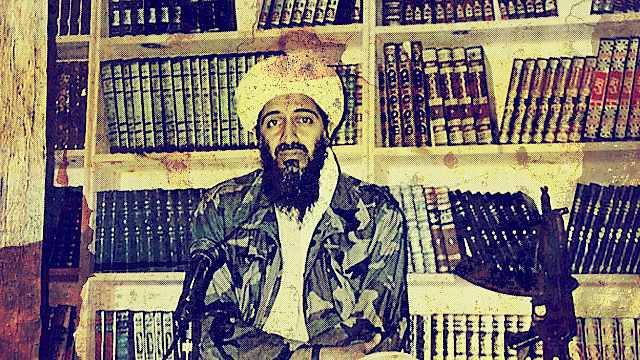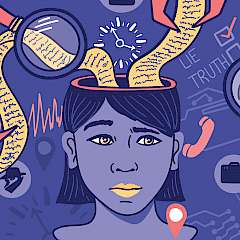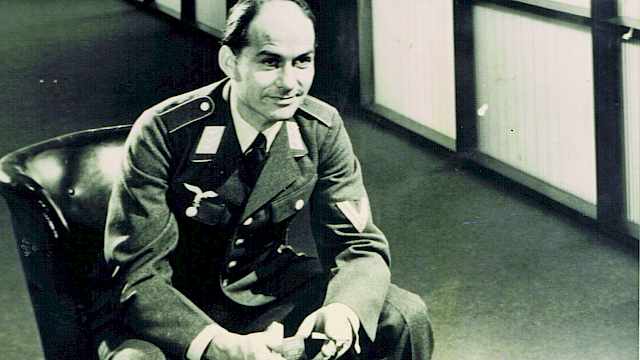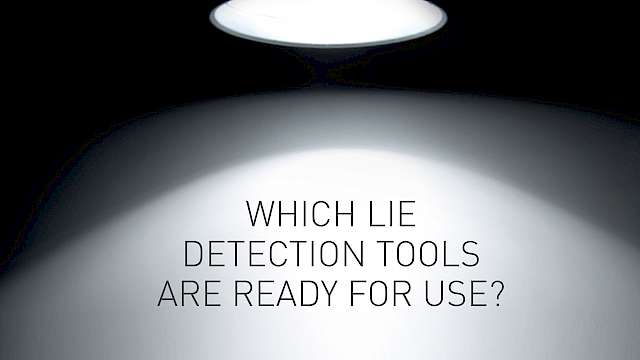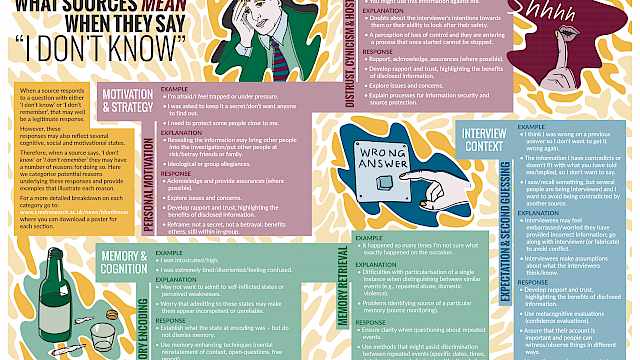Understanding what happened during major critical incidents, from terrorist attacks to riots, not only involves piecing together information from available sources such as phone and audio recordings, CCTV, and body-worn video but also obtaining detailed accounts from the response and frontline personnel on the ground.
These ‘operational witnesses’ are very likely to have been operating in what might be described as a high-stress context, particularly when such scenarios evolve in ways that are unpredictable or challenging in terms of establishing control of the situation. How reliable are accounts from memory for such events?
Under the right conditions when a situation is perceived as positive, the ‘stressor’ may be viewed as an achievable challenge which results in increased effort and even enhanced performance. However, if the ‘stressor’ is negatively assessed, then efforts may be disrupted and performance impaired.
From a psychological perspective, stress is associated with perceptions of unpredictability, lack of control, novelty and social-evaluative judgment
Broadly, stress or negative arousal is thought to increase cognitive load and impair cognitive and perceptual-motor performance on tasks that demand capacity to execute them effectively.
A nice illustration of this offset is evident in the analysis of police shooting accuracy rates.
Despite rates of over 90% accuracy in static shooting tests in training or practice environments, research suggests that the average shooting accuracy for real-life use of force incidents falls between 15–50%. Indeed, research using police samples and realistic shooting exercises involving an element of threat has repeatedly documented negative effects of stress and anxiety on police shooting performance including a reduction in goal-directed attention, increased speed of shooting an approaching suspect and reduced shooting accuracy.
Stress is adaptive. Under conditions of acute stress, a fight-or-flight response may be activated involving a complex brain and neuroendocrine response that allows the essentially positive evaluation of the scenario focused on fighting or fleeing (and facilitates the physiological changes necessary to take either of these actions). However, under the same conditions, a negative evaluation could, quite literally, be crippling.
How does stress affect memory?
Research suggests this is a complex question and that the effect of stress on memory depends on a number of factors, including the level of stress experienced, whether stress is encountered at the encoding of the memory or when retrieving the memory and what information is being recalled.
Memory for stressful or emotionally arousing events is often enhanced and the effect does not appear to be limited to negative events but also extends to positive events. Therefore, for example, when exposed to a negative experience, people often report memories that are more vivid with higher confidence and reflect an advantage for the negative details.
This is a well-documented phenomenon in laboratory research, is a frequent feature of anecdotal reports and is essentially an adaptive feature of cognition that enables us to remember important information. Neurobiological research suggests that stress hormones work to enhance memory consolidation which is a process by which memories are stabilised after the information has been acquired.
Until recently, it was thought that strong emotional content strengthens all aspects of memory for the event in question making it more likely that the details will be remembered at retrieval. However, new research suggests another possibility: that stress or negative emotion only potentially enhances memory for the negative aspects of the event (but not other aspects) resulting in a more fragmented – or less coherent – overall memory of the event.
This understanding of memory may help explain observations of errors in memory for challenging or evolving events in accounts of operational witnesses who find themselves in unpredictable, dangerous environments and may experience varying degrees of emotional arousal or stress responses.
In contrast to many laboratory studies, research examining the effect of arousal on cognitive performance in applied operational training settings has highlighted cognitive and memory difficulties.
For example, one set of studies examined memory performance of solider participants who had been exposed to high levels of interrogation stress, including physical confrontation, in an intensive survival school training exercise. The ability of the soldiers to recognise a target individual, playing the role of an aggressive captor who had physically confronted and threatened them for over 30 minutes, was impaired. Memory performance for the stressful aspects of the training exercise was also impaired and susceptible to misleading post-event information. For example, 27% of soldiers falsely reported that their interrogator wielded a weapon.
Participants showed poorer recall and recognition than colleagues who experienced a less stressful version of the same event
In other words, rather than showing enhanced memory for the experienced events, these participants showed poorer recall and recognition than colleagues who experienced a less stressful version of the same event.
It is worth noting that memories for stressful operational events do not necessarily reflect increased errors. Instead, a number of studies have shown that less information overall tends to be recalled about stressful events – in other words, statements can reflect some notable omissions of information.
In a large firearms training exercise involving a simulated escalating armed robbery incident, research found that although responding officers typically provided accounts that were highly accurate (>90%), a significant number of statements omitted what might be considered relevant information about the behaviour of the perpetrators.
How can we account for the discrepancy between research suggesting that stress should result in better memories for events and demonstrations of impaired performance in more applied contexts? The likely explanation is (at least) two-fold.
First, despite reliably manipulating stress levels, laboratory tests typically induce only mild to moderate stress levels. While mild-moderate levels of stress may enhance memory, at least for some aspects of an event, higher levels of stress are likely to disrupt hippocampus function and impair memory performance.
Second, tests conducted in simulated ‘real world’ contexts are more involved, interactive, and typically involve participants responding in an operational capacity, which places additional cognitive demands in terms of decision-making and response identification.
To date, only one study has attempted to directly examine the effects of operational response role on memory for an incident.
In a simulated armed hostage-taking scenario, officer participants were assigned an active witness role (requiring them to respond as they would while on duty) or an observer role. Active responders, who experienced higher heart rates during the scenario than the observers despite the deliberate restriction of actual physical movements, provided significantly fewer correct overall details in their accounts of the incident. Interestingly, both active and observer officers made interesting and meaningful recall errors with 18% reporting that the perpetrator pointed a weapon at officers in the final phase of the scenario – in fact, the handgun remained in the waistband of the perpetrator’s trousers throughout.
In sum, stress can both help and hinder memory performance. In many contexts, the accuracy or otherwise of our memories for stressful events is not terribly important – it is more important that we recover optimally from our exposure to that stress and return to good psychological health despite our experiences. However, evaluators of accounts provided by officers or other operational witnesses following stressful challenging incidents should be aware that memory may be impaired for details of the incident and that errors do not necessarily reflect a deliberate attempt to deceive, cover-up or deflect blame.
Is it possible to improve the ability to remember stressful events?
Operational training often focuses on physical, technical and tactical performance and sometimes neglects the effects of factors such as stress or anxiety – and, critically, the effect of such factors on subsequent ability to provide detailed and accurate debriefs or reports.
Training with threat-induced anxiety and high realism scenarios should provide ‘operational witnesses’ an opportunity to experience how physiological arousal impacts on their own response performance and affords an opportunity to improve and build resilience under such conditions – including the development of strategies to improve subsequent memory performance.
Read more
- Carey Marr, Melanie Sauerland, Henry Otgaar, Conny Quaedflieg, and Lorraine Hope, 2018. ‘The Effect of Acute Stress on Memory: How It Helps and How It Hurts’. The Inquisitive Mind. https://www.in-mind.org/article/the-effect-of-acute-stress-on-memory-how-it-helps-and-how-it-hurts.
Copyright Information
As part of CREST’s commitment to open access research, this text is available under a Creative Commons BY-NC-SA 4.0 licence. Please refer to our Copyright page for full details.


